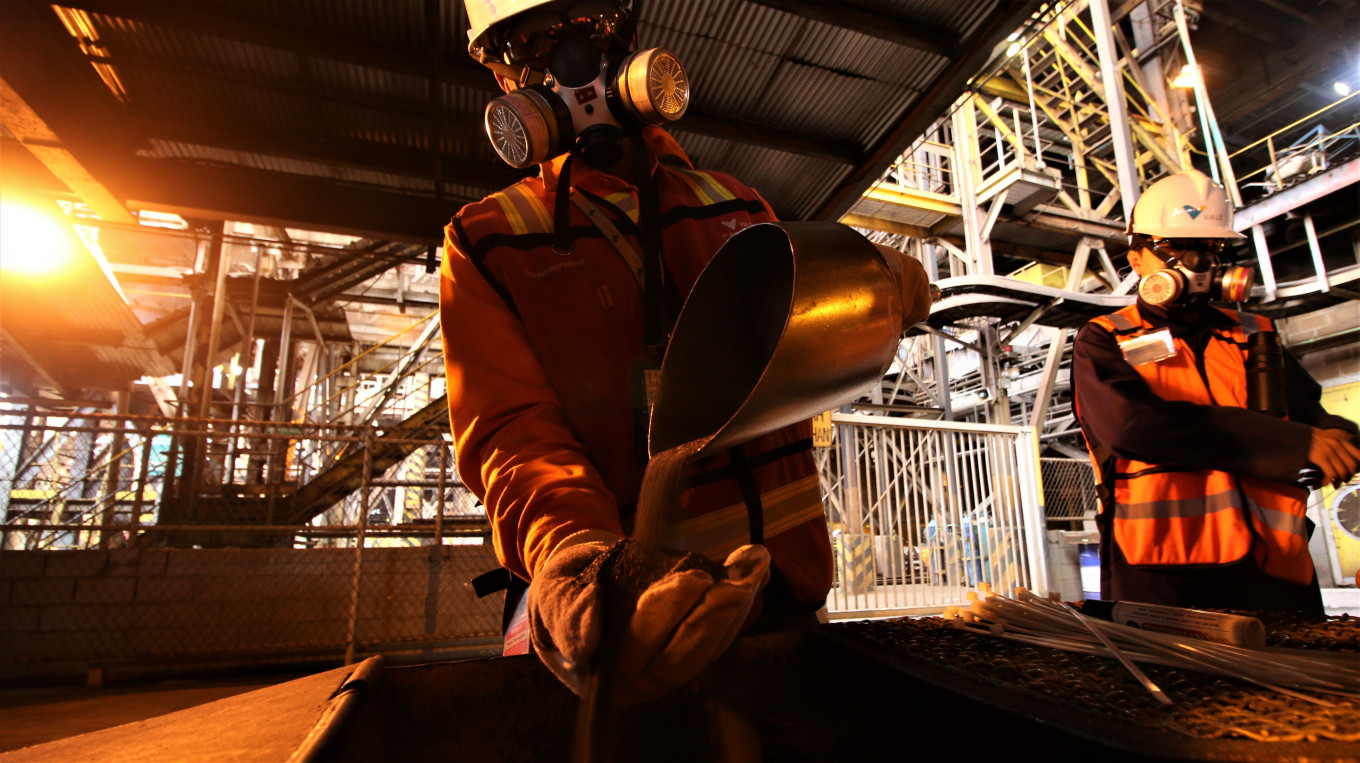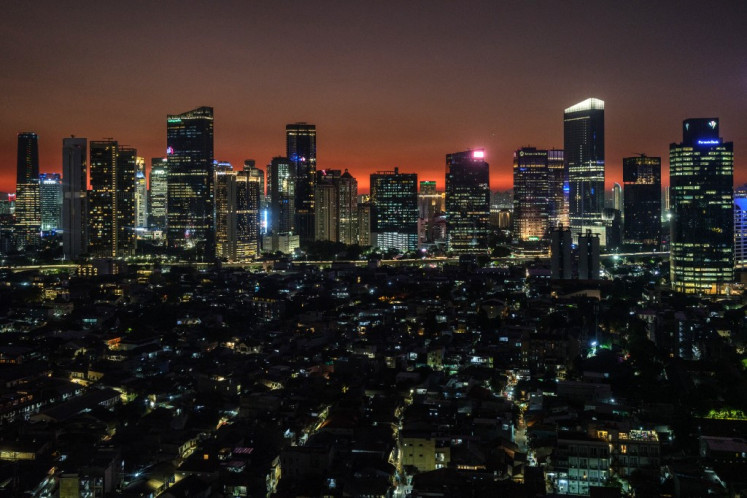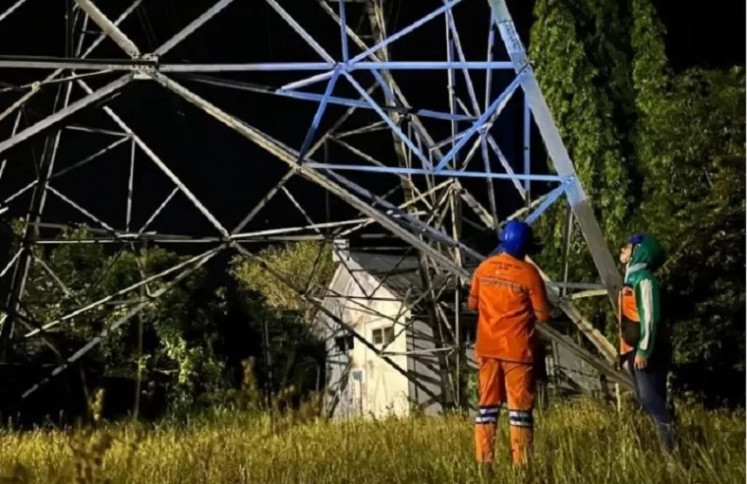Popular Reads
Top Results
Can't find what you're looking for?
View all search resultsPopular Reads
Top Results
Can't find what you're looking for?
View all search resultsLG exit no small matter
LG's recent exit from the US$8.45 billion Project Titan presents an opportunity for the government to take a step back, take stock of market conditions and take a broader view of its downstream goals.
Change text size
Gift Premium Articles
to Anyone
T
he government has been quick to play down the news that LG Energy Solution is withdrawing from an US$8.45 billion electric vehicle battery (EVB) project that formed a central part of its plan to develop an integrated EVB production chain.
President Prabowo Subianto told reporters the country was big and had a bright future, and that there would be new investment to take the place of the South Korean battery giant.
Staying positive and looking ahead is good, but we must also look back, ask hard questions about what went wrong, hear any hard answers and make the necessary policy changes.
Of course we must find a new investor, but first we need an honest debriefing with our old investor: Clearly something is amiss when one of the earliest key players in our nascent battery industry calls it quits after five years.
Specifically, LG pulled out of Project Titan, a proposed joint venture with state-owned companies to build an end-to-end production chain under the wider Indonesia Grand Package EV strategy, from nickel processing to battery cell manufacturing.
LG cited shifting market conditions and a changing investment climate among the reasons for its exit from the project.
China’s Zhejiang Huayou Cobalt is set to replace LG as Titan’s lead investor, according to Investment and Downstream Minister Rosan Roeslani, who also said the government had led the initiative in parting ways with the South Korean company.
While Jakarta is open to and has actively pursued investment from anywhere in the world, Chinese investors have proven to be our most loyal in the downstream minerals industry.
We must be grateful that, in comparison to investors from other countries, they appear to be more willing to go along with our development agenda and accept short-term risks for the prospect of long-term rewards. They are also virtually indispensable in some parts of the battery supply chain, particularly when it comes to capital-intensive nickel smelters, so we must make sure that they continue to feel welcome.
This is why recent reports flagged by a lawmaker about Chinese EV giant BYD being harassed by extortion while building a factory in West Java is highly alarming.
We can work on this issue and other aspects of the investment climate, but technological advancement is a risk we have much less control over.
According to the Indonesia Battery Corporation (IBC), one reason for LG’s exit is that nickel manganese cobalt (NMC) batteries have been ceding global market share to lithium iron phosphate (LFP) batteries, which contain no nickel. Each has pros and cons, but LFP batteries are generally cheaper and so make for cheaper electric vehicles overall.
The problem is that Project Titan is built around NMC batteries to make use of Indonesia’s large nickel reserves and growing capacity in nickel processing.
To be sure, NMC batteries still have their place, particularly in high-end Tesla models where they are appreciated for greater range, but much of the world needs affordable EVs to underpin the energy transition in the transportation sector. And this includes Indonesia.
In more bad news, China’s Contemporary Amperex Technology Co. Ltd. (CATL) recently slashed its investment in an Indonesian battery project by more than half, also citing concerns over market shifts.
The fact that battery technology remains very much in flux is a substantial risk to long-term investment, and one that even LFP projects are not immune to.
In a stark example of this, CATL launched a new battery technology earlier this month that uses neither nickel nor lithium but sodium, which is even more affordable.
As much as we would like to, we cannot rely on nickel as leverage to drive our economic development, which is why our downstream industry road map must take a broad view rather than focus on certain minerals.
The Prabowo administration recognizes this and has stressed a need to cover a wide range of sectors, including agriculture and fisheries.
We must double down on this.











